Community
Copyright@ Australian Catholic University 1998-2026 | ABN 15 050 192 660 CRICOS registered provider: 00004G | PRV12008
Copyright@ Australian Catholic University 1998-2026 | ABN 15 050 192 660 CRICOS registered provider: 00004G | PRV12008
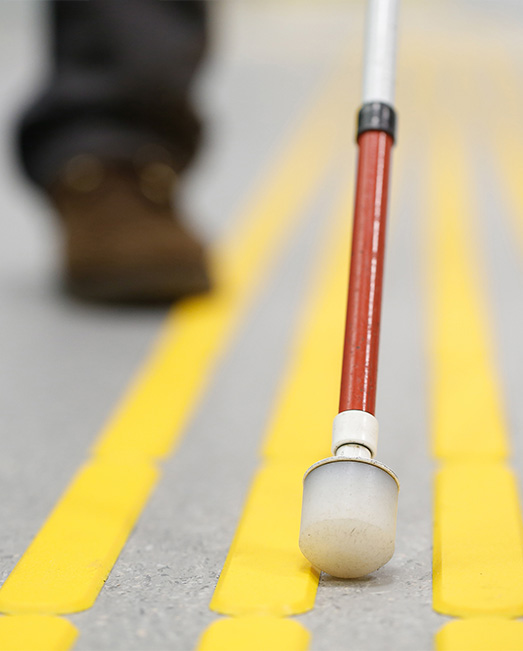
Dr Melissa Cain is an inclusive education researcher who knows better than most that there’s endless possibilities to what people with vision impairments can achieve – and she doesn’t need to look further than her own home.
“When my son Mikhail was born, his eyes were completely white and it was immediately obvious that something was wrong,” Dr Cain recalled. “He was born in Singapore where I was working at the time and no one knew what was going on. I had just had a caesarian and it was a flurry of activity. My first dazed reaction to the news was, ‘Wait… what?’”
Mikhail, who is now 12, was diagnosed with a very rare condition called Peters anomaly, which is when an eye’s cornea and iris don’t develop correctly. “I quickly organised an emergency passport for him and three weeks later we were on our way to meet with the Melbourne Children’s Hospital’s head of paediatric ophthalmology,” Dr Cain said. “He recommended a specialist in Brisbane and we flew up to meet with the new doctor a couple of days later – and in his waiting room is where I met Melissa Fanshawe.”
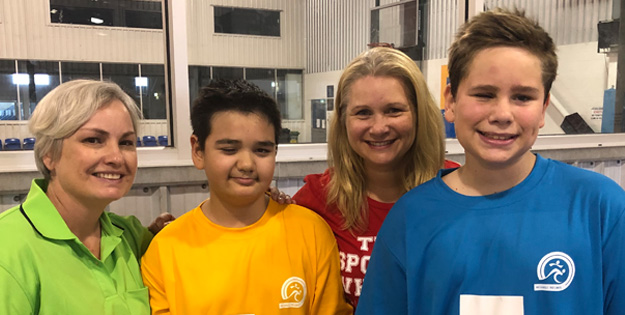
From left: Dr Melissa Cain, Mikhail, Dr Melissa Fanshawe, Oliver
Dr Fanshawe from the University of Southern Queensland had also recently given birth to a son, Oliver, with the same rare condition. The two researchers developed a natural bond from this first meeting that eventually led to their new project.
“Our research is about looking for ways to improve the mainstream schooling experience for students with a vision impairment,” Dr Cain said. “We’re trying to find what works and what are the challenges.
We want to change policies, educate pre-service and in-service teachers, and our big goal is to get the expanded core curriculum accredited in senior school.
“Within the expanded core curriculum, Mikhail learns orientation and mobility skills, how to read Braille, and how to use all of the latest tech and apps. So, all the things that sighted students don’t need to learn. But, because students like Mikhail are doing all this extra work, we think it should be worth something and count towards their OP or ATAR.”

For now, Dr Cain said school “isn’t easy” for many students with a vision impairment and some have a particularly rough time trying to access an education. “It’s everything from a school simply refusing to admit these students to being unwilling to make any allowances for them. And some kids are bullied endlessly without the school stepping in,” she said.
Parents like Dr Cain and Dr Fanshawe, however, are refusing to back down.
“If parents or a teacher thought my son didn’t belong at his school, my question is how do you know his journey? You can’t just dismiss him like that.”
“Even I had no idea he’d be at the level of independence he’s at now, so please don’t view our children as an inconvenience. Mikhail and kids like him deserve the same education as everyone else.”
Dr Cain said it’s “just about finding access, that’s all it is. And we’ve definitely learnt from our research so far that our kids have a great tool box of solutions to draw on, and the only thing holding them back is a teacher or a school telling them, ‘Oh, I know what you need’ rather than asking the kid for the solution. Sometimes there are really quick fixes to Mikhail’s problems, they don’t have to be a big deal.
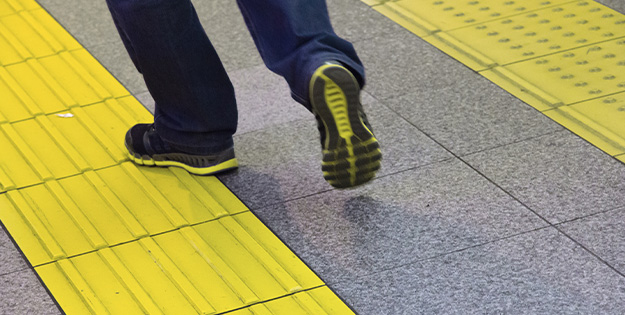
“For example, Mikhail has a talking watch that he sets for five minutes before the bell rings for the end of class so he can start making his way to the next room before a million other kids are trying to do the same thing. He’s always found his own solutions from a very young age.”
Dr Cain said awareness and willingness to recognise the abilities of students like Mikhail is part of the whole philosophy behind inclusive education.
“There are still a lot of teachers out there saying, ‘Nope, don’t want that kid in my class.’ So, we’re working to get people over that initial hump and to move past the mindset that it’s all too hard.
The last thing we want is teachers panicking, thinking they have to do everything differently if they have a kid with a vision impairment in their class.”
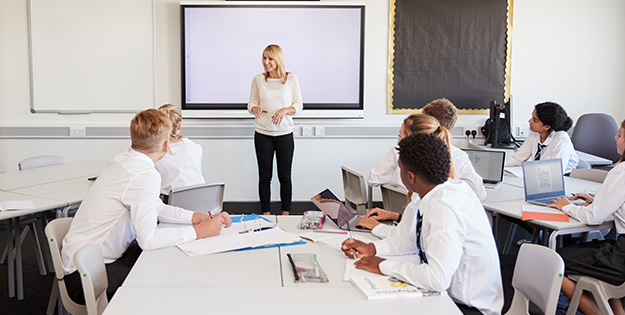
When Dr Cain was starting out, she readily acknowledges that inclusive education wasn’t what it is today. For most Australian children right now, although some with vision impairment may have other disabilities and attend special education units, the majority attend mainstream schools. Creating a culture of inclusive, safe, and supportive environments is not just best practice, it is now an ethical and legal requirement for all educational contexts in Australia.
For Dr Cain, she only needs to see her son thriving to know inclusive education works. “He’s at a great school now and what I like is they have the same expectations for him as everyone else. He will come home and tell me he has to shine his shoes tonight or he’ll get in trouble. I like that. He doesn’t get away with anything.
“He’s also on the state team for goalball, which is the premiere sport for people with a vision impairment, he's a grade one braille reader, he takes the bus to and from school, he plays trombone (he learns aurally) and he’s also started fencing with sighted students. I couldn’t tell you how! But he’s won lots of his matches. He just listens more and waits till his opponents get in close and then in he goes. Maybe because he’s used to getting out of the way of things he’s more nimble?”
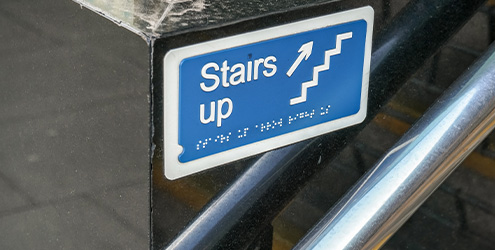
Dr Cain said in spite of his supportive school, teaching Mikhail to speak up for himself and become self-sufficient was always her priority as a parent. “With a view to his future, he’s never going to have less responsibilities at work, he’s going to have to get public transport and figure things out,” she said. “But I will always advocate for him.”
Dr Melissa Cain is an inclusive education and arts education lecturer and researcher at ACU.
Copyright@ Australian Catholic University 1998-2026 | ABN 15 050 192 660 CRICOS registered provider: 00004G | PRV12008